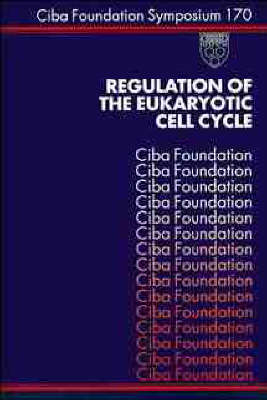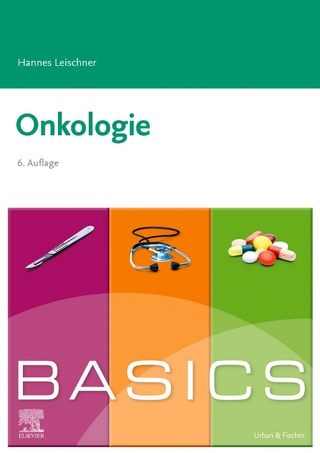
Regulation of the Eukaryotic Cell Cycle
Seiten
1992
John Wiley & Sons Ltd (Verlag)
978-0-471-93446-2 (ISBN)
John Wiley & Sons Ltd (Verlag)
978-0-471-93446-2 (ISBN)
- Titel ist leider vergriffen;
keine Neuauflage - Artikel merken
This volume reviews the latest developments in cell cycle research, including analysis of the principles underlying the control of cell division. The book is intended to provide a framework for future research, specifically in the understanding and treatment of cancer.
Regulation of the Eukaryotic Cell Cycle Chairman: T. Hunter 1992 This book contains an in-depth review of the regulation of the eukaryotic cell cycle, with contributions from leading scientists in the field. The rapidly expanding family of cyclins is described for Saccharomyces cerevisiae; mouse and human homologues have been identified and their roles, especially in somatic cells, are being explored, as described here. The cyclins associate with members of another rapidly growing family, the cyclin-dependent kinases, to form the active kinase responsible for phosphorylating key substrates at defined checkpoints in the cell cycle. The book discusses the residues involved and whether the primary regulator of entry into mitosis, MPF (a cyclin/p34cdc2 complex), is phosphorylated by itself or by a different kinase. The complexity of the kinases involved in cell cycle regulation is matched by a growing number of phosphatases. The cdc25 family in Schizosaccharomyces pombe has at least ten members; three closely related homologues are known in humans and others, possibly distinct, in Drosophila.
More kinases and phosphatases have been identified in Aspergillus nidulans: there is important discussion of whether these represent pathways parallel to those known in other eukaryotes and whether homologues of genes such as nimA will be identified in yeasts and higher organisms. A major checkpoint in the cell cycle relates to the completion of DNA replication. What feature of unreplicated DNA is recognized by the regulators that govern entry into mitosis? The answer remains to be discovered, but important clues are described. Evidence linking the cell cycle with oncogenesis at the molecular level is accumulating. Chromosomal translocation and amplification of the human cyclin D1 gene locus have been found in parathyroid tumours and breast carcinomas, respectively. Expression of cyclin D genes is stimulated by growth factors, suggesting that these genes link growth factor signals with certain cell cycle transitions. The product of the c-src proto-oncogene is phosphorylated during mitosis by p34cdc2. Transcription factors such as the retinoblastoma gene product, pRb, and E1A are also found associated with and may be regulated by the cyclin-dependent kinases.
Complete elucidation of all the molecular components that control the cell cycle remains an issue for the future, but the message from this book is that much has already been learned, including the fact that it is far more complicated than was previously thought! Related Ciba Foundation Symposia: No. 150 Proto-oncogenes in cell development Chairman: T. Hunter 1990 ISBN 0 471 92686 8 No. 148 Molecular control of haemopoiesis Chairman: D. Metcalf 1990 ISBN 0 471 92561 6 No. 142 Genetic analysis of tumour suppression Chairman: E. J. Stanbridge 1989 ISBN 0 471 92299 4
Regulation of the Eukaryotic Cell Cycle Chairman: T. Hunter 1992 This book contains an in-depth review of the regulation of the eukaryotic cell cycle, with contributions from leading scientists in the field. The rapidly expanding family of cyclins is described for Saccharomyces cerevisiae; mouse and human homologues have been identified and their roles, especially in somatic cells, are being explored, as described here. The cyclins associate with members of another rapidly growing family, the cyclin-dependent kinases, to form the active kinase responsible for phosphorylating key substrates at defined checkpoints in the cell cycle. The book discusses the residues involved and whether the primary regulator of entry into mitosis, MPF (a cyclin/p34cdc2 complex), is phosphorylated by itself or by a different kinase. The complexity of the kinases involved in cell cycle regulation is matched by a growing number of phosphatases. The cdc25 family in Schizosaccharomyces pombe has at least ten members; three closely related homologues are known in humans and others, possibly distinct, in Drosophila.
More kinases and phosphatases have been identified in Aspergillus nidulans: there is important discussion of whether these represent pathways parallel to those known in other eukaryotes and whether homologues of genes such as nimA will be identified in yeasts and higher organisms. A major checkpoint in the cell cycle relates to the completion of DNA replication. What feature of unreplicated DNA is recognized by the regulators that govern entry into mitosis? The answer remains to be discovered, but important clues are described. Evidence linking the cell cycle with oncogenesis at the molecular level is accumulating. Chromosomal translocation and amplification of the human cyclin D1 gene locus have been found in parathyroid tumours and breast carcinomas, respectively. Expression of cyclin D genes is stimulated by growth factors, suggesting that these genes link growth factor signals with certain cell cycle transitions. The product of the c-src proto-oncogene is phosphorylated during mitosis by p34cdc2. Transcription factors such as the retinoblastoma gene product, pRb, and E1A are also found associated with and may be regulated by the cyclin-dependent kinases.
Complete elucidation of all the molecular components that control the cell cycle remains an issue for the future, but the message from this book is that much has already been learned, including the fact that it is far more complicated than was previously thought! Related Ciba Foundation Symposia: No. 150 Proto-oncogenes in cell development Chairman: T. Hunter 1990 ISBN 0 471 92686 8 No. 148 Molecular control of haemopoiesis Chairman: D. Metcalf 1990 ISBN 0 471 92561 6 No. 142 Genetic analysis of tumour suppression Chairman: E. J. Stanbridge 1989 ISBN 0 471 92299 4
Partial table of contents:; G1 Control in Yeast and Animal Cells (S. Reed, et al.); Is START a Switch?; (F. Cross & J. McKinney); Activation of MPF in Fission Yeast (J. Millar, et al.); Protein Phosphatases and Cell Division Cycle Control (M. Yanagida, et al.); DNA Replication and the Cell Cycle (B. Stillman, et al.); DNA Replication and Progression Through the Cell Cycle (M. Dasso, et al.); Cyclins A and B1 in the Human Cell Cycle (J. Pines & T. Hunter); Cell Cycle Regulation of Retinoblastoma Protein Phosphorylation (B. Lin & J. Wang); c-Src and Mitosis (D. Shalloway, et al.); Indexes.
| Erscheint lt. Verlag | 17.9.1992 |
|---|---|
| Reihe/Serie | Ciba Foundation Symposium ; v. 170 |
| Verlagsort | Chichester |
| Sprache | englisch |
| Maße | 155 x 235 mm |
| Gewicht | 600 g |
| Themenwelt | Medizin / Pharmazie ► Medizinische Fachgebiete ► Onkologie |
| Naturwissenschaften ► Biologie ► Genetik / Molekularbiologie | |
| Naturwissenschaften ► Biologie ► Zellbiologie | |
| ISBN-10 | 0-471-93446-1 / 0471934461 |
| ISBN-13 | 978-0-471-93446-2 / 9780471934462 |
| Zustand | Neuware |
| Haben Sie eine Frage zum Produkt? |
Mehr entdecken
aus dem Bereich
aus dem Bereich
Korrigierter Nachdruck 2020 mit allen Ergänzungen der UICC aus den …
Buch | Softcover (2020)
Wiley-VCH (Verlag)
42,90 €
Resilienz innovativ stärken : ein Praxishandbuch
Buch | Softcover (2023)
Kohlhammer (Verlag)
36,00 €


